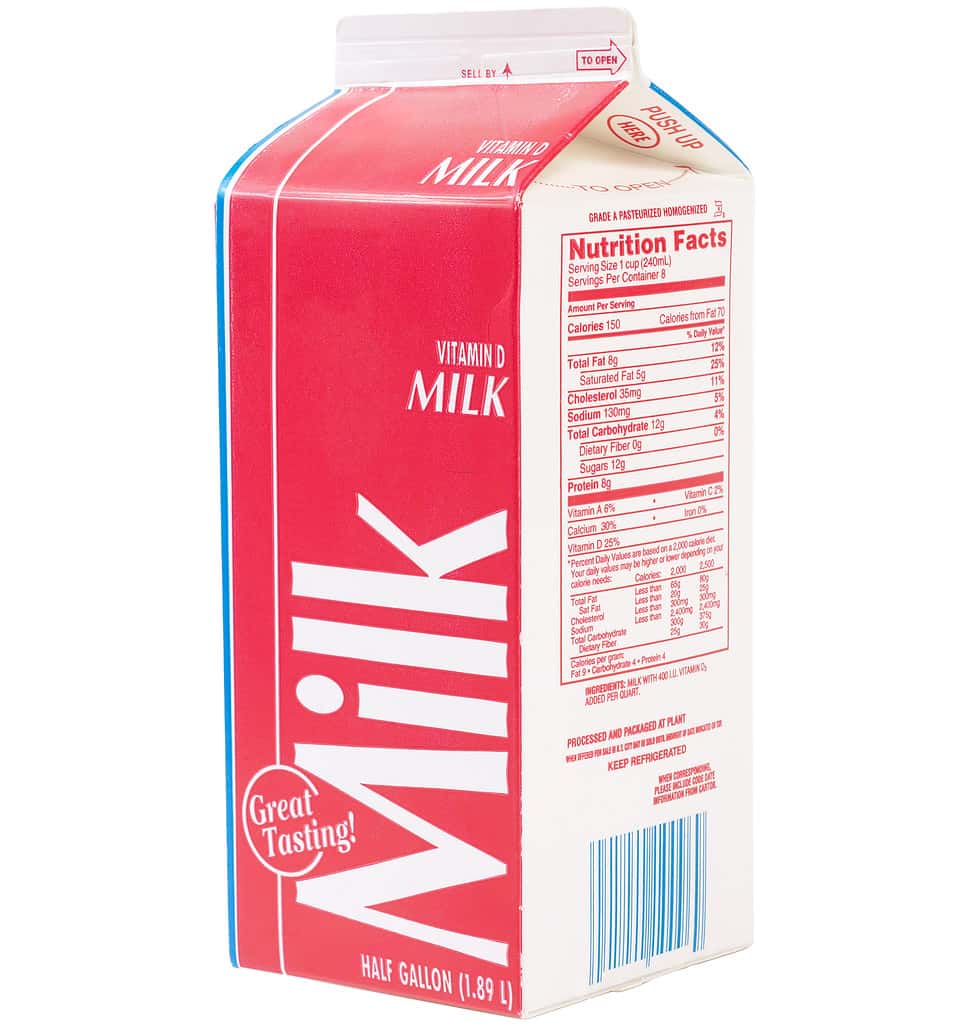Many cat owners assume milk is safe — and even healthy! — for their feline loved ones. In fact, in many movies, we see depictions of sweet cats and kittens lapping up bowls of milk as a treat. However, is milk actually safe for cats to consume? The answer might shock you.
This article will explain important considerations to keep in mind when deciding whether to feed your cat milk.
Can Cats Drink Milk?
While most cats won’t experience fatal side effects from drinking milk, experts still advise against offering milk to felines. While it might not be particularly harmful in very small doses, milk can cause digestive distress, obesity, and nutrient deficiencies in many cats. Overall, it’s simply not worth the risk to give your cat a bowl of milk — even as an occasional treat.
Things to Consider Before Feeding Your Cat Milk
Are you still considering giving your beloved kitty a bowl of milk? Here are three things to know before feeding.

Milk is loaded with fat and sugar, both of which can be extremely unhealthy for your cat.
©© Getty Images/PhotoObjects.net via Getty Images
1. Most Cats Are Lactose Intolerant
Just as humans can be lactose intolerant, experiencing symptoms like stomach cramps, nausea, vomiting, and diarrhea, cats can be, too. In fact, most cats — especially adult ones — lack the enzyme that processes lactose. In other words, if you give your cat even just a taste of milk, it might end up feeling ill later in the day. Of course, no one wants to watch their feline loved ones suffer. There are plenty of other — safer — treats you can feed your cat that won’t cause adverse side effects.
2. Milk Can Contribute to Obesity in Cats
If you regularly feed your cat milk, it can eventually become obese. Cow milk contains a lot of fat, and since most cats are prone to obesity, excessive consumption of milk can cause weight gain. Cat obesity is a dangerous condition that can lead to a host of life-threatening health issues, from diabetes to heart disease.
3. Milk Consumption Can Lead to Nutrient Deficiencies in Cats
Another risk of regular milk consumption in cats is nutrient deficiencies. Milk often curbs a cat’s appetite, which can prevent it from eating normal cat food (which is packed with the necessary nutrients).
Should You Feed Your Cat Milk?
The short answer to this question is no, you shouldn’t feed your cat cow’s milk. While your feline loved one might beg for a taste of this creamy treat, it simply isn’t worth the potential side effects and risks. When in doubt, stick to water; but if you must feed your cat milk, opt for an alternative option like oat milk (so long as it doesn’t contain added sugars or toxic sweeteners).
The photo featured at the top of this post is © Sergio Photone/Shutterstock.com
Thank you for reading! Have some feedback for us? Contact the AZ Animals editorial team.







